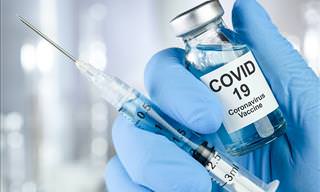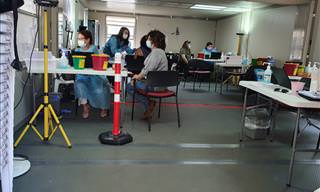According to the latest COVID-19 news, as of now, a commercially available vaccine for the dangerous virus may still be a year or more away. Quarantines, social distancing, and proper hygiene certainly help slow down the spread of the Coronavirus, but thousands of new cases and hundreds of deaths are still registered on a daily basis. To help these patients, medical researchers worldwide are trying to come up with alternative treatments that would help reduce the number of fatalities and help Coronavirus patients recover faster. One of the latest suggestions called ‘passive antibody therapy’ may help fight the Coronavirus, and researchers say they could start treating the first patients in just a few weeks.
What Is Passive Antibody Therapy?

This technique suggested to help fight the Coronavirus is not new. In fact, passive antibody therapy was the brainchild of the two scientists - Behring and Kitasato - who first discovered how certain antibodies in the blood help fight and develop an immunity to specific infectious diseases as far back as the 1890s. With time, scientists learned to collect those specific antibodies from the blood of patients who have recovered from the disease. They would inject people with these antibodies, which helped patients recover and this is how passive antibody therapy was born in the 1930s.
With time, the approach was abandoned, as antibiotics were becoming more popular. However, with the growing threat of antibiotic resistance and the emergence of new infectious diseases like the Coronavirus, passive antibody therapy has been experiencing a resurgence in the past few years. The approach is suggested to be effective at both preventing and treating infectious diseases.
Can Passive Antibody Therapy Be Used to Fight COVID-19?
In a recent study from The Journal of Clinical Investigation, US researchers claim that this method could be successfully used to treat COVID-19 patients, and unlike a vaccine and other novel approaches, this technique is readily available and doesn’t require additional testing or equipment. The researchers point out that most blood banks already have the equipment necessary to isolate the serum-containing Coronavirus antibodies, and thus it would be possible to start treating people within just a few weeks.
The authors suggest that they’re planning on using this approach on those who are most at risk of developing serious complications of the virus, namely seniors and patients with preexisting conditions. In order to start implementing this technique, however, medical professionals do rely on volunteers who have recently recovered from COVID-19 because they would have to donate blood in order to produce the serum.
Also, there are some limitations to the therapy The researchers do point out that this approach is most effective for preventing and treating the condition at its earliest stages of development, so fast and efficient diagnosis is a must in this situation. As one of the researchers, Dr. Casadeval, points out in a recent interview, “It’s all doable — but to get it done it requires effort organization, resources… and people who have recovered from the disease who can donate the blood.”
As of now, there is no information regarding the estimated dates when the passive antibody treatment may become available, but the fact that medical experts from all over the globe are working on a cure for COVID-19 certainly fills us with hope for the future.
 Go to BabaMail
Go to BabaMail


























